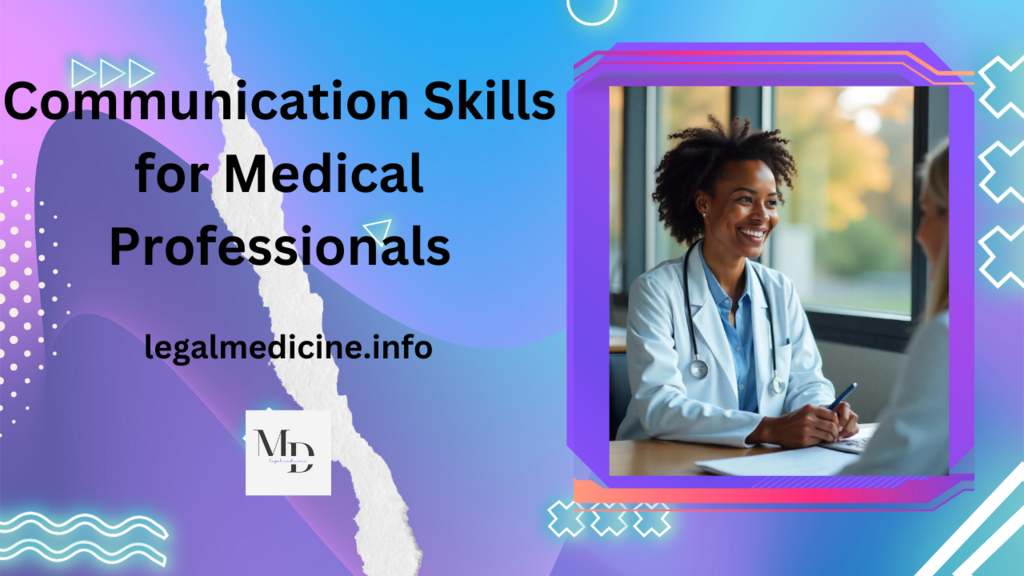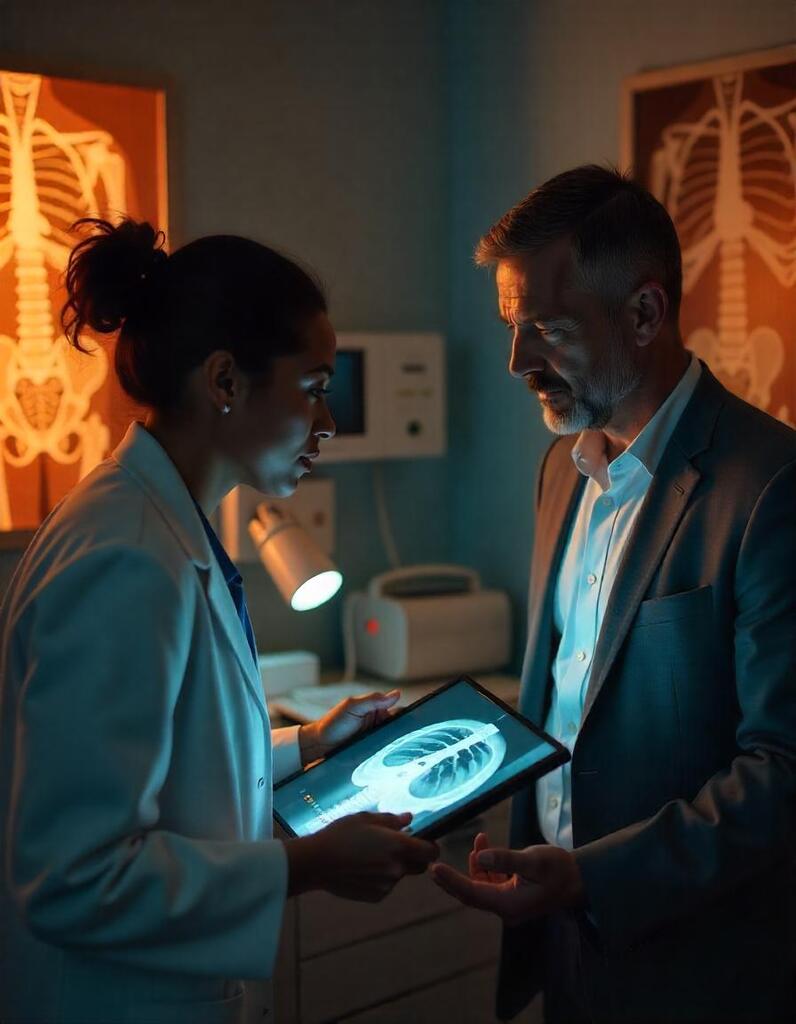Communication Skills for Medical Professionals

Introduction
Communication Skills for Medical Professionals are essential for patient care, accurate diagnosis, and teamwork. Effective communication enhances trust, reduces errors, and improves healthcare outcomes.Effective communication is at the heart of quality healthcare. In the medical profession, clear and empathetic communication between doctors, nurses, patients, and colleagues ensures accurate diagnosis, better treatment adherence, and improved patient satisfaction. This blog explores the significance of communication skills in medicine, covering key types, barriers, and strategies for effective communication.
Importance of Communication Skills for Medical Professionals
Medical professionals must master communication to:
- Enhance Patient Trust: Patients feel more comfortable sharing symptoms and concerns.
- Improve Diagnosis and Treatment: Clear discussions lead to accurate assessments.
- Reduce Medical Errors: Miscommunication can result in serious health risks.
- Strengthen Doctor-Patient Relationships: Empathy and listening improve healthcare experiences.
- Enhance Team Collaboration: Effective teamwork leads to better patient outcomes.
Types of Communication in Medicine

Medical professionals engage in various forms of communication:
- Verbal Communication: Spoken interactions with patients, families, and colleagues.
- Non-Verbal Communication: Facial expressions, eye contact, gestures, and tone of voice.
- Written Communication: Medical records, prescriptions, and patient instructions.
- Visual Communication: Use of charts, diagrams, and imaging reports.
- Telecommunication & Internet-Based Communication: Video calls, emails, and telemedicine consultations.
Non-Verbal Communication in Medicine
Non-verbal cues are just as important as words in healthcare. Key components include:
- Facial Expressions: Smiling and nodding to show attentiveness.
- Body Language: Open posture and maintaining appropriate eye contact.
- Paralanguage: Tone, pitch, and speed of speech.
- Touch (Haptics): Gentle reassurance through appropriate touch.
- Proxemics (Use of Space): Respecting personal boundaries to maintain comfort.
Barriers to Effective Communication

Several obstacles can hinder effective communication in healthcare:
- Physiological Barriers: Hearing or speech difficulties in patients or providers.
- Psychological Barriers: Emotional distress, anxiety, or mental health conditions.
- Environmental Barriers: Noise, overcrowding, or lack of privacy.
- Cultural Barriers: Differences in language, beliefs, and customs.
- Medical Jargon: Overuse of technical terms that patients may not understand.
Strategies for Effective Communication
Healthcare providers can overcome communication challenges by adopting these strategies:
- Active Listening: Focus on the patient, acknowledge concerns, and ask clarifying questions.
- Use Simple Language: Avoid medical jargon and use layman’s terms.
- Empathy and Compassion: Show understanding and concern for patient emotions.
- Encourage Two-Way Communication: Allow patients to ask questions and express concerns.
- Use Visual Aids: Charts and images enhance patient understanding.
- Verify Understanding: Ask patients to repeat instructions to confirm comprehension.
The Role of Communication in Medical Education

Medical students and professionals must continually refine their communication skills through:
- Simulation Training: Practicing patient interactions in controlled settings.
- Workshops and Seminars: Learning from experienced medical educators.
- Peer Feedback: Gaining insights from colleagues and mentors.
- Real-World Experience: Interacting with diverse patient populations.
Frequently Asked Questions (FAQs) about Communication Skills for Medical Professionals
1. Why is communication important in medicine?
Effective communication improves patient trust, diagnosis accuracy, and healthcare outcomes.
2. How can doctors improve non-verbal communication?
By maintaining eye contact, using open body language, and speaking with a calm tone.
3. What is the biggest barrier to doctor-patient communication?
Medical jargon and cultural differences often hinder clear understanding.
4. How can patients contribute to effective communication?
By asking questions, expressing concerns, and clarifying doubts with their healthcare providers.
5. What role does technology play in medical communication?
Telemedicine, electronic health records, and AI-assisted diagnostics improve communication efficiency.
Conclusion about Communication Skills for Medical Professionals
Effective communication skills are a vital component of medical practice. Whether speaking with patients, coordinating with colleagues, or documenting clinical findings, clear and empathetic communication leads to better healthcare outcomes. Continuous training and practice in communication can enhance a medical professional’s ability to provide compassionate and effective care.
For further reading, visit the World Health Organization (WHO) for guidelines on communication in healthcare settings.
